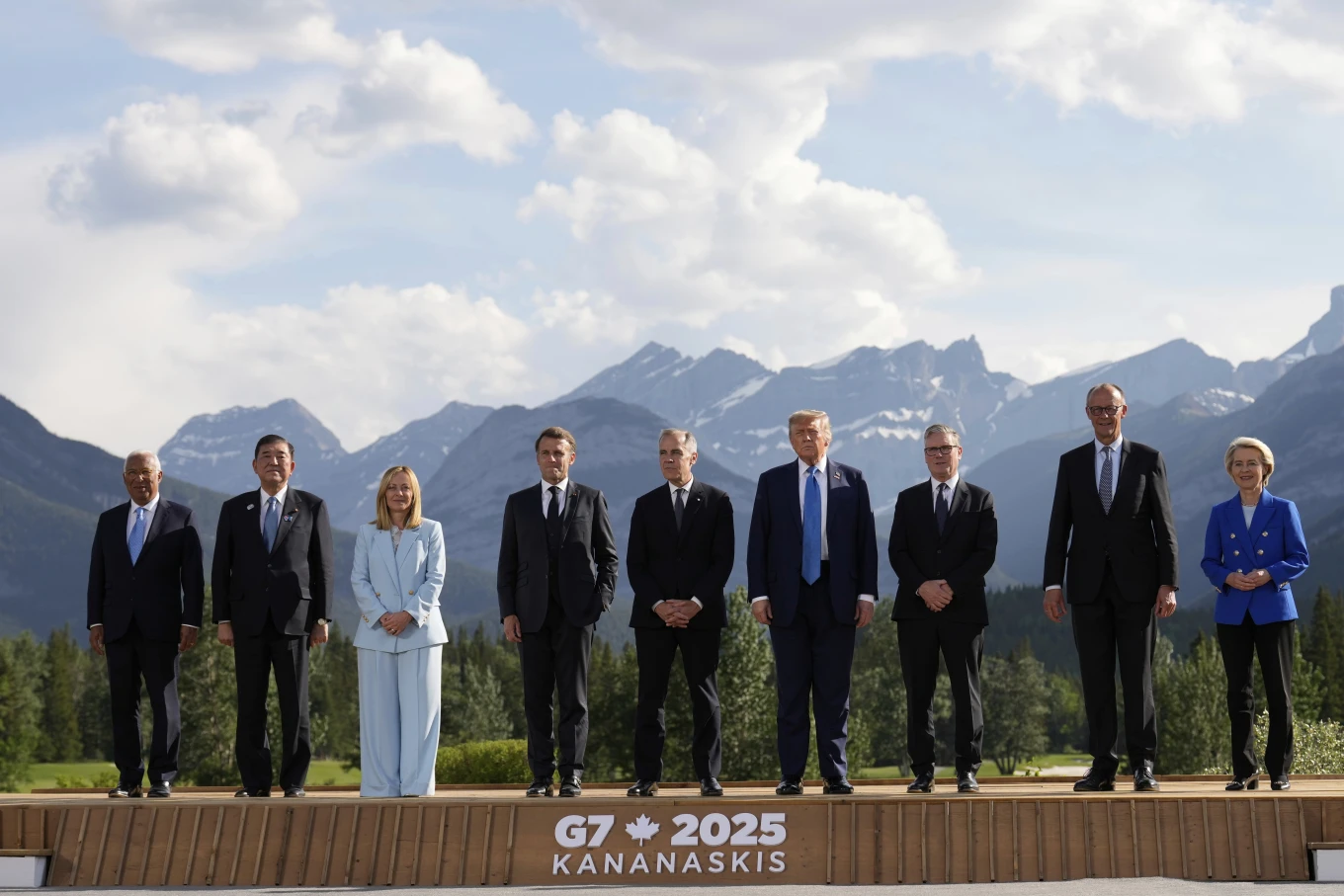US President Donald Trump abruptly left the Group of Seven summit on Monday, departing a day early as the conflict between Israel and Iran intensified.
World leaders had gathered in Canada with the specific goal of helping to defuse a series of global pressure points, only to be disrupted by a showdown over Iran’s nuclear program that could escalate in dangerous and uncontrollable ways. Israel launched an aerial bombardment campaign against Iran four days ago, reports AP.
At the summit, Trump warned that Tehran needs to curb its nuclear program before it is “too late.” He said Iranian leaders would “like to talk” but they had already had 60 days to reach an agreement on their nuclear ambitions and failed to do so before the Israeli aerial assault began. “They have to make a deal,” he said.
Asked what it would take for the US to get involved in the conflict militarily, Trump said Monday morning, “I don’t want to talk about that.”
So far, Israel has targeted multiple Iranian nuclear program sites but has not been able to destroy Iran’s Fordo uranium enrichment facility, as the site is buried deep underground.
By Monday afternoon, Trump warned ominously on social media, “Everyone should immediately evacuate Tehran!” Shortly after that, Trump decided to leave the summit and skip a series of Tuesday meetings that would address the ongoing war in Ukraine and global trade issues.
As Trump posed for a picture Monday evening with the other G7 leaders, he said simply, “I have to be back, very important.”
Canadian Prime Minister Mark Carney, the host, said, “I am very grateful for the president’s presence, and I fully understand.”
The sudden departure only heightened the drama of a world that seems on verge of several firestorms. Trump already has hit several dozen nations with severe tariffs that risk a global economic slowdown. There has been little progress on settling the wars in Ukraine and Gaza.
But in a deeper sense, Trump saw a better path in the United States taking solitary action, rather than in building a consensus with the other G7 nations of Canada, France, Germany, Italy, Japan and the United Kingdom.
British Prime Minister Keir Starmer, French President Emmanuel Macron, Italian Premier Giorgia Meloni and German Chancellor Friedrich Merz held an hourlong informal meeting soon after arriving at the summit late Sunday to discuss the widening conflict in the Mideast, Starmer’s office said.
And Merz told reporters that Germany was planning to draw up a final communique proposal on the Israel-Iran conflict that will stress that “Iran must under no circumstances be allowed to acquire nuclear weapons-capable material.”
The G7 leaders all signed a joint statement Monday night saying Iran “can never have a nuclear weapon” as they urged a “broader de-escalation of hostilities in the Middle East, including a ceasefire in Gaza.”
By early Monday evening, Trump seemed willing to push back against his own supporters who believe the US should embrace a more isolationist approach to world affairs.
“AMERICA FIRST means many GREAT things, including the fact that, IRAN CAN NOT HAVE A NUCLEAR WEAPON. MAKE AMERICA GREAT AGAIN!!!” Trump posted on Truth Social, his social media platform.
As the news media was escorted from the summit’s opening session, Carney could be heard as he turned to Trump and referenced how the US leader’s remarks about the Middle East, Russia and China had already drawn attention to the summit.
“Mr President, I think you’ve answered a lot of questions already,” Carney said.
The German, UK, Japanese and Italian governments had each signaled a belief that a friendly relationship with Trump this year can help keep public drama at a minimum, after the US president in 2018 opposed a joint communique when the G7 summit was last held in Canada.
Going into the summit, there was no plan for a joint statement this year.
Beyond Carney and Starmer, Trump had bilateral meetings or pull-aside conversations with Merz, Japanese Prime Minister Shigeru Ishiba and European Commission President Ursula von der Leyen.
He talked with Macron about “tariffs, the situation in the Near and Middle East, and the situation in Ukraine,” according to Macron spokesperson Jean-Noël Ladois.
On Tuesday, Trump had been scheduled before his departure to meet with Mexican President Claudia Sheinbaum and Ukrainian President Volodymyr Zelenskyy. Zelenskyy said one of the topics for discussion would be a “defense package” that Ukraine is ready to purchase from the US as part of the ongoing war with Russia, a package whose status might now be uncertain.


